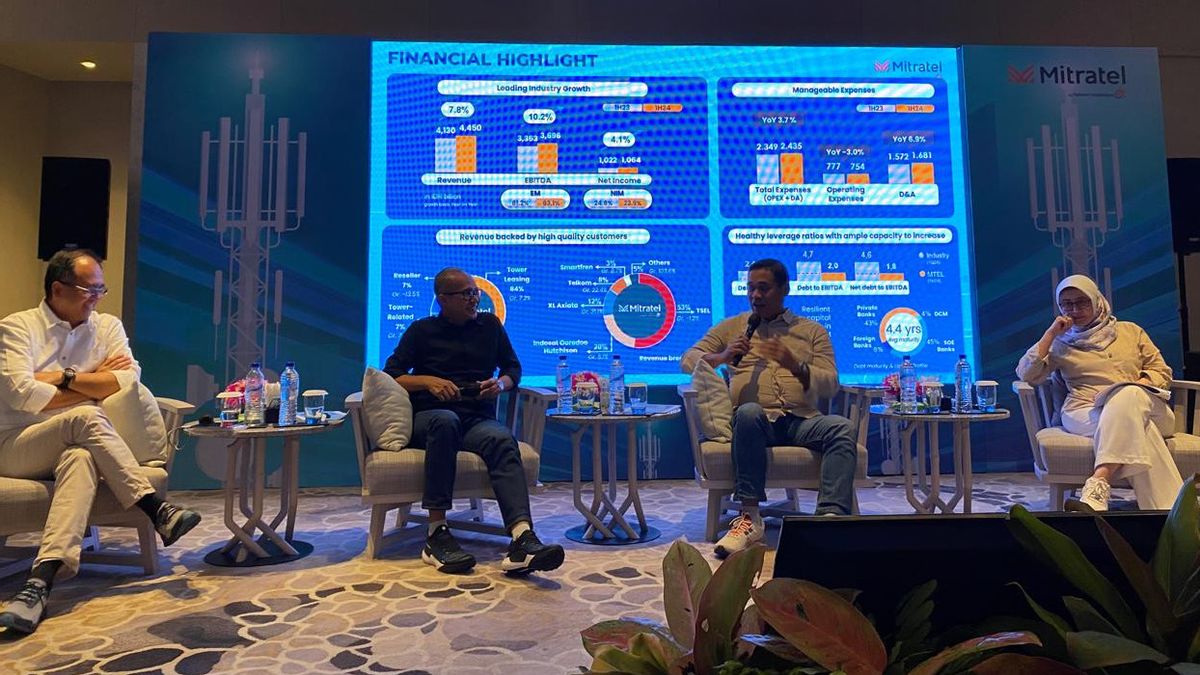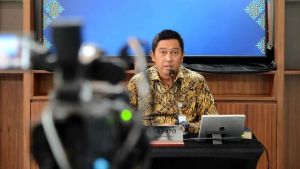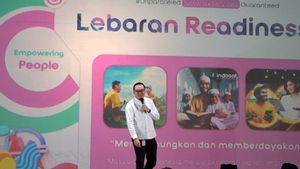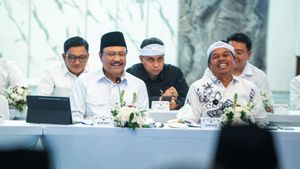The LABUAN BAJO - Equitable access to high-quality internet and telecommunication networks is still a major challenge in this country. The fact shows that until now there are still more than 57 million Indonesians who have not been connected to the internet (APJII survey, 2024), especially in the leading, outermost and farthest regions (3T).
Supported by more than 38,000 towers and more than 37.000 KM fiber optics, PT Dayamitra Telekomunikasi Tbk or Mitratel (MTEL) as the largest digital telecommunication infrastructure company in Indonesia, seeks to take a bigger role to be at the forefront of accelerating the equitable access to telecommunication networks in all corners of the country, especially in Eastern Indonesia.
One of the efforts to improve telecommunications services in Indonesia was carried out by encouraging the innovation of the Flying Tower System (FTS), a solar-powered unmanned aircraft technology that uses High Altitude Platform Station (HAPS) technology from Airbus subsidiary AALTO HAPS Ltd. (AALTO).
Mitratel has just established a non-exclusive strategic partnership in the development of the Flying Tower System (FTS) with AALTO. The collaboration between Mitratel and AALTO is an excellent potential to expand connectivity. This includes expanding the coverage of cellular operators (MNO).
Mitratel's President Director, Theodorus Ardi Hartoko (Teddy), during Media Gathering, in Labuan Bajo, Monday, August 5, said that this collaboration between Mitratel and AALTO was the company's effort to support the Indonesian government's plan to provide equal access to high-quality telecommunications for the entire community.
"Internet access can improve the quality of life as well as encourage economic growth in the region. Therefore, we pioneered various initiatives and adopted new technologies that enable Mitratel to expand its network effectively. Mitratel is always committed to remaining the best and growing sustainably in supporting equal distribution and digital sovereignty in Indonesia," he explained.
Committed to developing a telecommunication network outside Java, currently 59 percent or a total of 22,607 towers owned by Mitratel are outside Java. This composition is in line with the company's strategic steps to seize opportunities for cellular operator expansion in developing its business outside Java.
This is also reflected in the growth of tenants outside Java of 8%, higher than in Java, whose growth is 6 percent. In line with that, the growth of the tenancy ratio outside Java is 2.3 percent higher than in Java by 1.6 percent.
Various efforts to strengthen infrastructure and innovation initiated by Mitratel further strengthen the company's performance growth as reflected in the achievement of the first semester of 2024. Revenue reached IDR 4.45 trillion, an increase of 7.8 percent from the same period the previous year (year on year / YoY) and net profit reached IDR 1 trillion.
Industry confidence in Mitratel continues to spur management to expand its business and explore opportunities that are in line with the Company's strategy, including the adoption of new technologies to deal with changes in industry by making selective strategic partnerships and continuing to develop infrastructure outside Java.
"We believe this strategy brings us closer to Mitratel's vision to become the number one Digital InfraCo in the APAC (Asia-Pacific) market," added Teddy.
The Mitratel business model emphasizes itself in the Economic Sharing system, where Mitratel is present as a one-stop solution for various telecommunications infrastructure needs in Indonesia. The business model that is trusted to assist the Mobile Network Operator (MNO) in carrying out this operational cost efficiency is one of the main factors in the growth of the number of Mitratel service tenants which reached 58,598 tenants, or an increase of 7.1 percent yoy.
The increasing trust of the telecommunications industry in Mitratel resulted in an increase in the company's profit, where profit before tax, interest and amortization (EBITDA) in the January - June 2024 period reached IDR 3.69 trillion. This figure increased by 10.2 percent compared to the same period last year, indicating a better increase in profitability.
The EBITDA margin, which increased to 83.1 percent from 81.2 percent in the previous year, reflects the company's better efficiency in line with the increasing business scale, the implementation of efficient business schemes, optimizing internal business processes through digitization and being more selective in working on the tower related business segment.
SEE ALSO:
Mitratel's various successes in business growth were achieved while still prioritizing and integrating sustainability principles into its operations and business strategies. Mitratel has made a number of sustainability efforts to reduce environmental impacts, namely by implementing a certified environmental management system and improving sustainable environmental policies.
One tangible form of efforts to reduce carbon dioxide (CO2) emissions, Mitratel uses solar panels as an alternative to environmentally friendly energy for Base Transceiver Station (BTS) towers located on off-grid locations.
As a result of these efforts, Mitratel achieved an ESG Risk Rating improvement between tower and telecommunications companies with a score of 22.4, above the average value of the domestic and global industry of 26.2, and maintained a position to always enter the LQ45 index.
"Our commitment to ESG is an integral part of Mitratel's long-term strategy. We believe that by implementing the best practices in the environment, social, and governance, we will not only create added value for the company but also for the community and the environment around us," concluded Teddy.
The English, Chinese, Japanese, Arabic, and French versions are automatically generated by the AI. So there may still be inaccuracies in translating, please always see Indonesian as our main language. (system supported by DigitalSiber.id)












